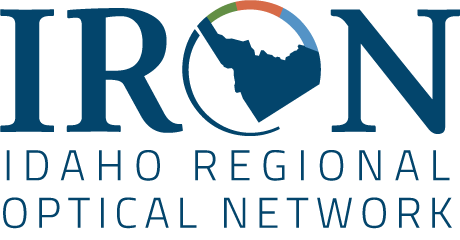How IRON has Helped Research in Idaho
Unlike regular Internet access we use in our homes and offices, Internet2 is used exclusively by K-12, higher education, and research facilities. This 17,000 mile backbone through America provides access to over 100,000 institutions, with each state or region using their Regional Optical Network as on-ramps.
Universities and other research institutions in Idaho can compete for valuable and meaningful research projects because they have access to Internet2 through IRON. Many research proposals require data management plans as a condition of the grant. High-speed internet connection has become a necessity to collaborate and develop world-class projects. Large data file transfers, computer modeling and simulations that need to be run all while also video conferencing and connecting with other researchers take enormous amounts of dedicated Internet connection and without this access, Idaho would fall far behind other research facilities across the country. It’s not uncommon for a university research department to send a one terabyte file, which would take 2-3 days to transfer using a home Internet connection. Researchers can use IRON to transfer that data to other facilities throughout the US and the world in just 2- 3 hours.
The Northwest Knowledge Network (NKN) is a perfect example of this. It provides research data management and computer support between the University of Idaho researchers and their collaborators, to ensure their grant conditions can be met. IRON supports NKN with the bandwidth necessary for this, which guarantees stability, quality and speed. And researchers can focus on what they want to be doing – the research. The Idaho National Laboratory has also been able to provide direct access to one of the world’s fastest supercomputers as a result of the connectivity IRON provides. Students in Idaho access this computer in a geographically-independent way (meaning they don’t have to travel to INL in Idaho Falls) and work on world-class research projects. With a 100 Gigabit connection (a speed which allows you to download the entire Library of Congress in approximately 26 seconds), big-data cyber security projects can be worked on in real-time, allowing students to prepare for jobs in this and other fields.
